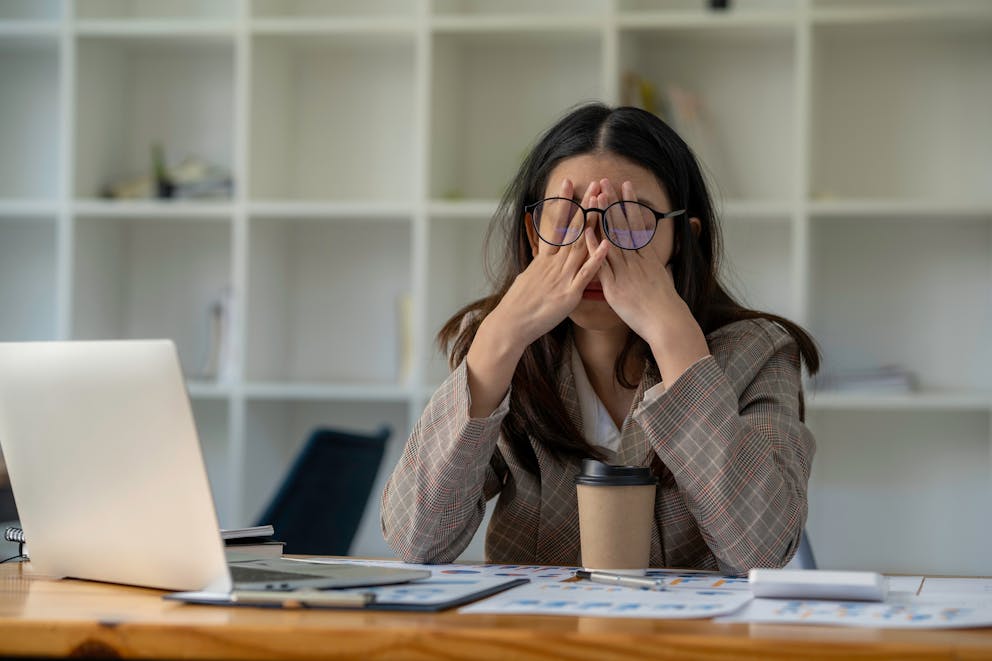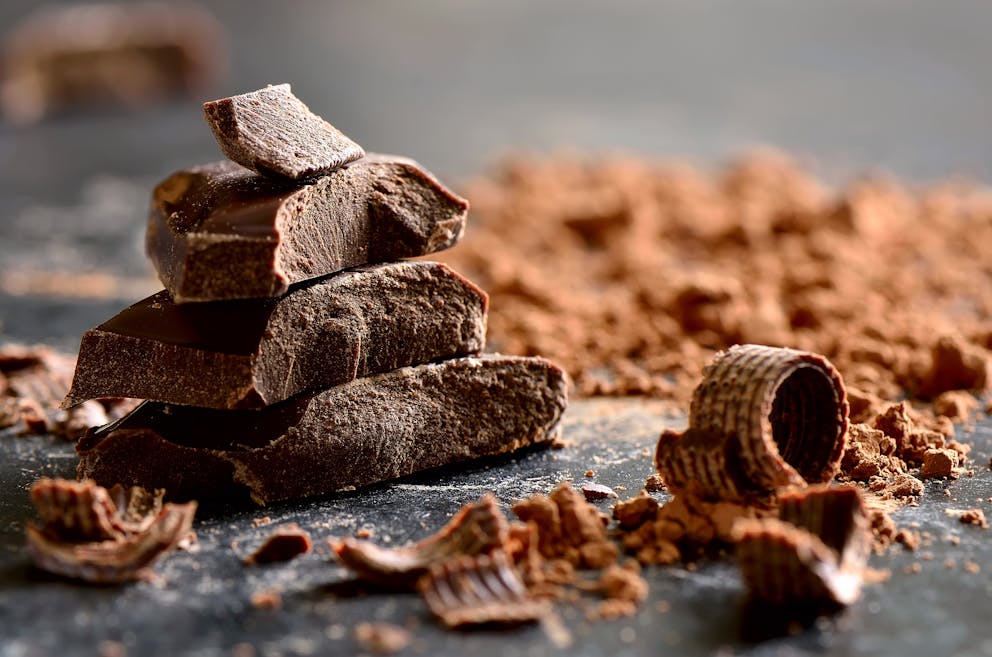Are You In Love With Chocolate
Imagine waking up not to the sound of your alarm but to a vibrant jolt of energy. No coffee is needed, and there is no groggy half-awake state.
Sounds like a dream? Well, let me introduce you. It's not just any trend; the silent revolution in our cups and diets is rewriting the rules on how we wake up.
The world buzzes with options—from Mountain Dew Kickstart lighting up mornings instead of traditional java to Red Bull giving wings when afternoon slumps hit hard. Yet amidst this caffeinated chaos lies.
Amid this stimulant storm, a light shines for those pursuing pure focus—simplicity amongst complexity.
Caffeine content dances wildly across beverages - an 8 fl oz cup here splashing with less caffeine than a dark chocolate bar there.
But, oh, it sings a different tune altogether! One where every ounce is calculated for impact without overstepping into jittery realms or sleepless nights.
So why are health-conscious consumers turning their gaze towards it? Is it because they're searching for better ways to stay healthy and fit? Absolutely. Folks constantly scout for goods that elevate their health, spotlighting this trend as noteworthy.
Understanding Caffeine's Impact on Sleep
We've all been there, tossing and turning at 3 AM, wondering why sleep evades us. Often, the culprit is as clear as your morning cup of joe: caffeine. So, how does caffeine mess with our shut-eye?
The Science Behind Caffeine and Sleep
Caffeine sneakily mimics adenosine molecules in our brains. Adenosine is like the body's bedtime signal—it tells us when we're tired.
But when caffeine jumps into the mix, it binds to these receptors instead, blocking the accurate signals. Suddenly, your brain isn't getting those "time for bed" memos.
Think about it this way: if adenosine rings the doorbell to let you know sleep is here, caffeine is that annoying neighbor who intercepts them at the gate and says you're not home.

Consequences of Disrupted Sleep Patterns
Lack of Zzz’s: Not catching enough shut-eye can leave you groggy and unfocused.
Mood Swings: Have you ever snapped at someone after a stormy night's sleep? There’s your reason.
Poor Health Outcomes: Long-term? Delving deeper, we're in heightened jeopardy for ailments such as cardiac complications and sugar imbalances.
A study published by NCBI confirms that excessive consumption indeed interferes with both the quantity and quality of therapeutic slumber time, illustrating how important moderating intake really can be for overall well-being.
So next time, before reaching out for another energy drink or brewing yet another pot after dinner—think twice. Your future self craving sweet dreams will thank you later.
The Global Caffeine Consumption Phenomenon
Diving into how the whole world seems to be smitten by caffeine is fascinating. Caffeine has evolved beyond a simple morning kickstart, transforming into a global obsession. Believe it or not, we gulp around 100 million metric tons of caffeine yearly.
That’s right, 100 million. This staggering number isn't just impressive—it tells us something profound about our culture.
Caffeine Addiction and Society
So why has caffeine become such an integral part of daily life worldwide? It’s simple: We're hooked on the buzz.
From that first sip of coffee in the morning to those energy drinks powering late-night study sessions or work deadlines, caffeine keeps us company and keeps us alert and on top of our game.
But this goes beyond personal preference. Our society thrives on productivity and being “always on.” And what better partner for this relentless pursuit than caffeine? Its ability to keep us awake makes it invaluable in a world where downtime seems like wasted time.
By its very nature, caffeine taps into our body’s wiring, blocking sleep signals and giving us that much-needed boost when needed. But as you marvel at your heightened alertness post-coffee break, remember—it’s all chemistry at play here.
We live when catching Zs is often seen as less critical than crossing off another task from our never-ending to-do lists.
This shift towards valuing wakefulness over restfulness highlights how deeply ingrained caffeine has become in societal norms around success and productivity.
Every cuppa joe represents more than just a beverage choice; it symbolizes a cultural commitment to pushing forward—at any cost.
So next time you reach for that espresso shot or crack open an energy drink before tackling your inbox again, think about what you're really buying into a globally shared ethos that "sleep can wait."
It's not just caffeine fuelling our days but a collective drive that keeps us all going, one sip at a time.
How Your Liver Affects Caffeine's Half-Life
Ever wonder why that late afternoon coffee sometimes keeps you up at night while your friend can sleep without a hitch after a double espresso? Well, it might just come down to how our livers handle caffeine. Yep, the liver.
The Science Behind Caffeine and Sleep
Caffeine zips through your body with one primary mission: to keep you alert. But here’s the kicker - its stay isn’t brief for everyone. Usually, caffeine's half-life is about four to six hours in healthy adults.
This means if you drink a cup of coffee containing 100 mg of caffeine at noon, by 6 p.m., roughly 50 mg could still be in your system.
But wait—there’s more. For folks dealing with liver conditions like fatty liver, cirrhosis, or hepatitis, this exit strategy gets delayed...big time. The half-life of caffeine can stretch out up to an astonishing hundred hours for them.
Consequences of Disrupted Sleep Patterns
This extended guest appearance by caffeine does more than make counting sheep harder—it can throw off your whole sleep game. Poor sleep doesn’t only mean groggy mornings; it can also affect everything from mood swings to weakened immunity over time.
If you're sitting there sipping on your fourth cup thinking, "That explains a lot," then yeah—it might be time to chat with the doc about how much java (or any caffeinated delight) suits you.
In essence:
Your liver plays goalie: It decides how long caffeine stays in your bloodstream.
Liver health matters: Conditions like fatty liver can significantly extend caffeine's effects.
Sleep quality takes a hit: Extended exposure equals potential tossing and turning.
What is the moral of the story? That magical bean juice we all love has different rules depending on who’s playing field—the liver—you’re working with.
Understanding this relationship between our favorite pick-me-up and our body’s filter system gives us better control over those precious Zzzs.
Caffeine Content in Popular Beverages
Have you ever wondered how much kick your favorite drink packs? Well, you're not alone. Embark with me on a journey through the caffeine cosmos, exploring the vast differences in buzz our beloved drinks offer.
Spotlight on Black Label Devil Mountain Coffee
If you thought your morning coffee packed a punch, wait till you meet the heavyweight champion of wakefulness—Black Label Devil Mountain Coffee.
With a staggering 1,555 milligrams of caffeine in 12 ounces, it's not just coffee; it's a full-blown wake-up call.
The Science Behind the Kick
Why does this matter? Well, to put it simply, more caffeine means more energy. But with great power comes great responsibility. Consuming such high amounts of caffeine isn't for everyone and can have profound health implications if not managed properly.
Consequences of Disrupted Sleep Patterns
Caffeine molecules are similar to adenosine molecules, which signal the body's sleep needs. Caffeine can bind to adenosine receptors and prevent sleep. Excessive consumption could lead to counting sheep becoming an all-night affair.
We're not merely sipping on the usual cup; this journey takes us to realms reserved for the hardiest of caffeine connoisseurs. Buckle up—it’s going to be one heck of a ride.

Beyond Coffee and Soda, Plus Does Chocolate Have Caffeine
Exploring whether chocolate contains caffeine is essential if you're seeking alternatives to coffee and soda for an energy boost. While most chocolates contain some caffeine, the amount varies depending on the type and brand.
Opting for dark chocolate with higher cocoa content may provide a subtle energy lift due to its caffeine content, but it's generally lower than coffee or soda.
Additionally, incorporating other energy-boosting foods like nuts, fruits, and whole grains into your diet can offer sustained vitality without the caffeine jitters.
Conclusion
So, here we are at the end of our caffeinated journey together. We've sipped through the science, waded through worldwide consumption habits, and even peeked into how our livers deal with that beloved buzz.
And let's not forget about Black Label Devil Mountain Coffee - a behemoth in a mug.
The truth? Caffeine has intricately entwined itself into the tapestry of worldwide customs, transcending its role as merely a tool for awakening or recharging. But as we've learned, moderation and understanding are crucial to keeping this relationship healthy.
Sure, coffee and soda have their place, but stepping beyond them opens up a world where energy doesn't come with jitters or sleepless nights.
This silent revolution in our cups isn't just about seeking alternatives for health’s sake—it’s about making informed choices that align with living fully awake lives (pun intended).
It turns out that those looking towards you aren’t just chasing after better ways to stay alert; they're pioneering paths towards well-being without compromise.
We might have started this chat thinking caffeine was simple—just another part of our day-to-day grind—but now? Now we know there's so much more beneath that steamy surface.
So yes, feel accomplished because you’re walking away from this table armed with knowledge—a powerful tool when deciding what fills your cup tomorrow.
Previous blog
Ketogenic Diet Plan Food List Cheat Sheet PDFTags

Popular
08/21/2024
55K views
02/23/2025
46.3K views
11/18/2024
277.5K views
03/18/2024
11/21/2022




